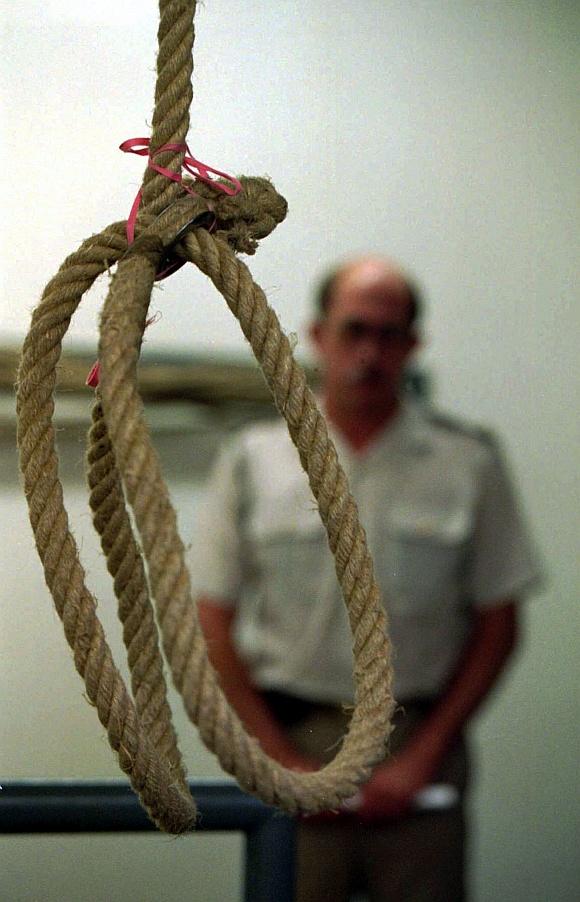
China has earned the dubious distinction of accounting for more executions than the rest of the world put together in 2011, global anti-death penalty group Amensty International has said.
Death sentences were pardoned or commuted in 33 countries, compared to just 19 in 2010.
Nevertheless, an increasingly isolated group of countries executed at an alarming rate in 2011. China continued to put thousands of people to death, and in the Middle East there was a sharp rise in the number of people executed in Iran, Iraq and Saudi Arabia.
States that year-on-year figured consistently among the top executioners also included North Korea, Saudi Arabia, Somalia, USA and Yemen.
Even in those countries that continued to use the death penalty, progress was made in 2011. In the USA, Illinois became the 16th state to abolish the death penalty. China removed the death penalty for 13 crimes, while adding at least two new capital crimes. Decreases in the use of the death penalty were recorded in Lebanon, the Palestinian Authority and Tunisia.
At least 18,750 people remained under sentence of death at the end of the year and at least 676 people were executed worldwide in 2011, excluding China.
...

The state eliminated the death penalty for 13 crimes in 2011, but people were still put to death for non-violent crimes like corruption and drug-trafficking.
The scope of the death penalty was even expanded in other areas to include additional crimes, such as forcing someone to donate an organ. All trials in China are fundamentally flawed -- with courts routinely relying on evidence extracted through torture or other ill-treatment, and defendants frequently denied the right to choose their own lawyers.
Syed Zahid Hussain Shah of Pakistan, aged 36, was executed by lethal injection on 21 September 2011. He had been sentenced to death in Shanghai in March 2010 for drug trafficking.
...
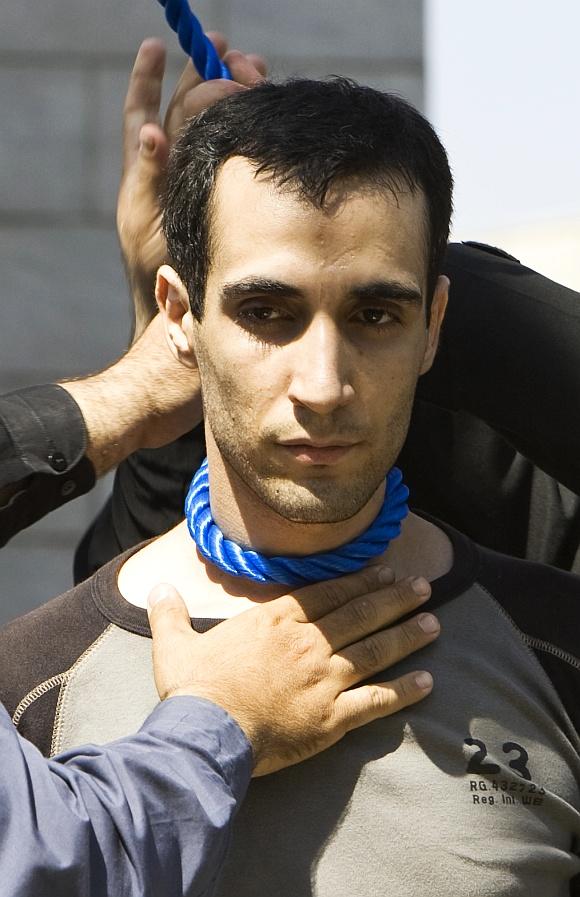
Iran was the only other country, apart from China, to execute hundreds of people in 2011. Like China, the true number is thought to be much higher as credible reports suggest hundreds of additional executions, which are not officially acknowledged.
Of the 360 executions acknowledged by official sources, at least three were teenagers at the time of the alleged crime. Executing people for crimes committed when they were under the age of 18 is strictly prohibited under international law.
On 21 September, 17-year old Ali Reza Molla-Soltani was publicly hanged at 4:44 am in Golshahr Square, Karaj, near Tehran. He had been sentenced to death in August for stabbing a popular athlete -- dubbed "Iran's strongest man" -- during a driving dispute in July.
He reportedly said he panicked and stabbed the victim in self-defence after the athlete attacked him in the dark.
...
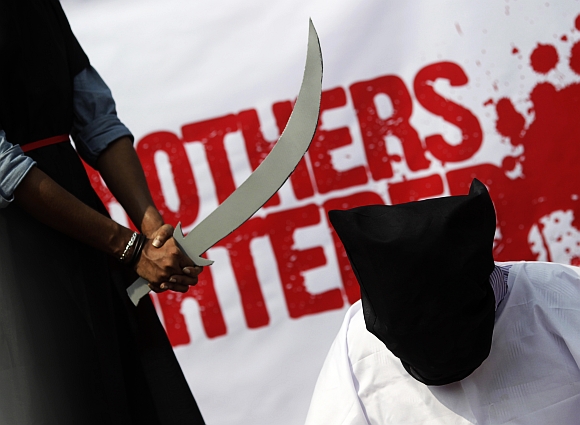
Overall, executions in Saudi Arabia more than tripled in 2011. At least 82 people -- compared to 27 in 2010 -- were executed.
At least one of those put to death was officially described as a "juvenile". Saudi Arabia was one of the few countries to show a sharp increase in the use of capital punishment, after four years of steady decline.
Many of those executed over the past years were foreign nationals, mostly migrant workers from developing countries in Africa and Asia. They are disproportionately affected by the secretive and summary nature of the criminal justice process.
Sudanese national Abdul Hamid bin Hussain bin Moustafa al-Fakki was beheaded in Medina on 19 September after being convicted on "sorcery" charges.
...
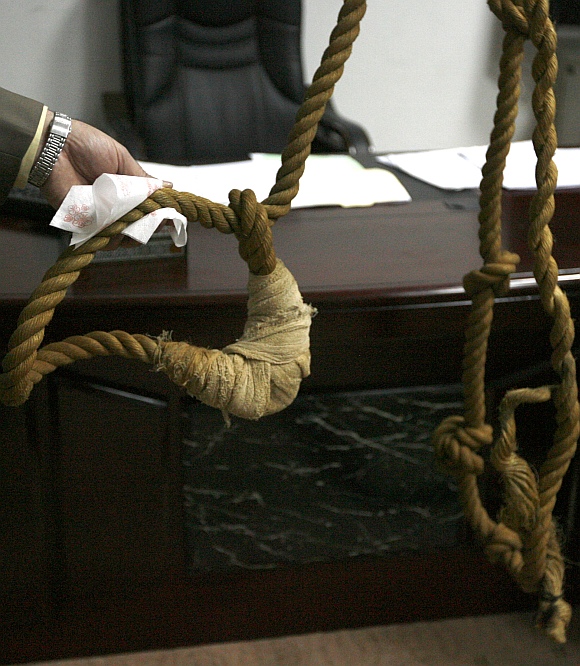
Most of the at least 68 people executed in 2011 were convicted of belonging to armed groups or involvement in attacks by these groups, which included murder, kidnapping, rape or other violent crimes.
The accused were often condemned to death after trials lasting just a few minutes. Twelve alleged members of armed opposition groups were hanged in Iraq on 24 November 2011.
They included Firas Hassan Fleih al-Juburi, Fadhel Ibrahim al-Juburi, and Haydar Mut'eb 'Abdel-Qader. The 12 men were reported to have been convicted under Iraq's anti-terrorism law and sentenced to death by a Baghdad court.
An official claimed that some of the men had been responsible for killings in a village north of Baghdad in 2006.
...
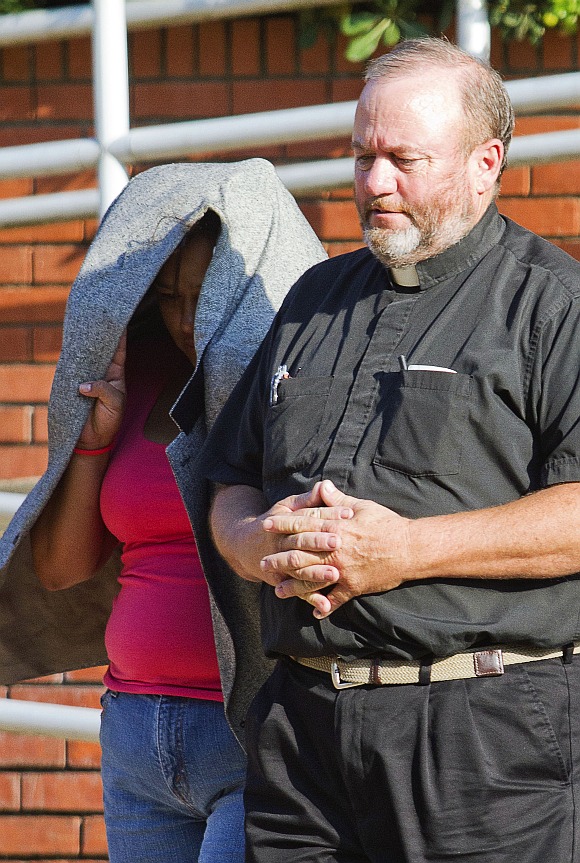
The United States of America was the only country in the G8 group of leading global economies to carry out executions in 2011. However, waning public support for the death penalty contributed to a decline in its use.
Humberto Leal, a Mexican man, was executed in July 2011 in Texas, despite a binding ruling by an international court that he had been denied the right to seek consular assistance following his arrest.